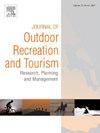寻找雪崩的线索-一个探索性比较专业和娱乐使用的雪,地形,和群体因素
IF 4.4
3区 管理学
Q1 HOSPITALITY, LEISURE, SPORT & TOURISM
Journal of Outdoor Recreation and Tourism-Research Planning and Management
Pub Date : 2025-02-12
DOI:10.1016/j.jort.2024.100841
引用次数: 0
摘要
在雪山地区滑雪这种快速发展的休闲活动引发了人们对安全的担忧,尤其是在易发生雪崩的地区。减轻这种风险的关键是休闲滑雪者对雪崩危险做出明智决定的能力。虽然雪崩专家已经开发出了一致的方法来评估雪崩问题,但尚不清楚休闲滑雪者的决定与这些方法是否一致。在这里,我们报告了一项调查研究,调查对象是在挪威北部特罗姆瑟附近一个受欢迎的野外滑雪区自行选择野外旅行的休闲滑雪者。该调查改编自landroø et al. (2020a),旨在检查雪崩地形下的决策过程,其中一部分参与者还使用GPS跟踪设备将他们的决策与委托的雪崩专业人员对特定斜坡的评估进行对比。本研究旨在确定非专业滑雪者在雪崩地形中使用的关键决策因素。我们分析了群体协调、规划策略和积雪评估对滑雪者出行中最关键决策点决策的影响。参与者的反应也与专家的雪崩危险评估进行了比较,以评估他们风险意识的准确性。基于193份调查问卷,我们的研究结果表明,尽管参与者参与了周密的计划和团队管理,但他们对积雪评估因素(即线索)的使用并没有随着环境或条件的不同而显著变化。该研究为雪崩地形下休闲滑雪者的决策模式提供了有价值的见解,突出了安全和风险评估策略的潜在改进领域。管理启示•迫切需要更集中的教育,旨在提高休闲滑雪者有效应用积雪评估线索的能力。•安全措施的制定需要更紧密地与休闲滑雪者的需求和技能保持一致,强调决策框架的实际应用。•确定知识差距有助于制定有针对性的宣传活动。•该研究的见解可以推动旅游部门的政策改进,以保护游憩者并提高雪崩易发地区的安全标准。这些有针对性的见解旨在优化教育策略,以提高野外休闲滑雪者的准备和安全。本文章由计算机程序翻译,如有差异,请以英文原文为准。
Searching for avalanche clues — An exploratory comparison of professional and recreational use of snow, terrain, and group factors
The fast-growing pastime of backcountry skiing in snowy mountain terrain has raised safety concerns, particularly in avalanche-prone areas. Key to mitigating such risks is the ability of recreational skiers to make informed decisions about avalanche dangers. While avalanche professionals have developed consistent approaches to assess avalanche problems, it is unclear how well recreational skiers’ decisions align with these approaches.
Here we report a survey study of recreational skiers who had embarked on self-selected backcountry trips in a popular backcountry skiing area, near Tromsø, Northern Norway The survey, adapted from Landrø et al. (2020a), was designed to examine decision-making processes in avalanche terrain, with a subset of participants also using GPS tracking devices to contrast their decisions with slope-specific assessments by a commissioned avalanche professional.
The study aimed to identify key decision-making factors utilized by non-professional skiers in avalanche terrain. We analyzed the influence of group coordination, planning strategies, and snowpack assessments on decision-making at the self-identified most critical decision point in the skiers’ trips. Participant responses were also compared against expert avalanche hazard assessments to evaluate the accuracy of their risk awareness.
Our findings, based on 193 survey responses, indicate that while participants engage in thorough planning and group management, their use of snowpack assessment factors (i.e. cues) does not vary significantly with different environments or conditions. The study offers valuable insights into the decision-making patterns of recreational skiers in avalanche terrain, highlighting areas for potential improvement in safety and risk assessment strategies.
Management Implications
- •There’s a critical need for more focused education aiming to enhance recreational skiers’ ability to apply snowpack assessment cues effectively.
- •Development of safety measures need to align more closely with the needs and skills of recreational skiers, emphasizing real-world application of decision-making frameworks.
- •Identifying knowledge gaps can help in crafting targeted awareness campaigns.
- •Insights from the study can drive policy enhancements within the tourism sector to safeguard recreationists and improve safety standards in avalanche-prone areas.
These targeted insights are aiming toward optimizing educational strategies to improve the preparation and safety of backcountry recreational skiers.
求助全文
通过发布文献求助,成功后即可免费获取论文全文。
去求助
来源期刊

Journal of Outdoor Recreation and Tourism-Research Planning and Management
HOSPITALITY, LEISURE, SPORT & TOURISM-
CiteScore
6.70
自引率
5.30%
发文量
84
期刊介绍:
Journal of Outdoor Recreation and Tourism offers a dedicated outlet for research relevant to social sciences and natural resources. The journal publishes peer reviewed original research on all aspects of outdoor recreation planning and management, covering the entire spectrum of settings from wilderness to urban outdoor recreation opportunities. It also focuses on new products and findings in nature based tourism and park management. JORT is an interdisciplinary and transdisciplinary journal, articles may focus on any aspect of theory, method, or concept of outdoor recreation research, planning or management, and interdisciplinary work is especially welcome, and may be of a theoretical and/or a case study nature. Depending on the topic of investigation, articles may be positioned within one academic discipline, or draw from several disciplines in an integrative manner, with overarching relevance to social sciences and natural resources. JORT is international in scope and attracts scholars from all reaches of the world to facilitate the exchange of ideas. As such, the journal enhances understanding of scientific knowledge, empirical results, and practitioners'' needs. Therefore in JORT each article is accompanied by an executive summary, written by the editors or authors, highlighting the planning and management relevant aspects of the article.
 求助内容:
求助内容: 应助结果提醒方式:
应助结果提醒方式:


